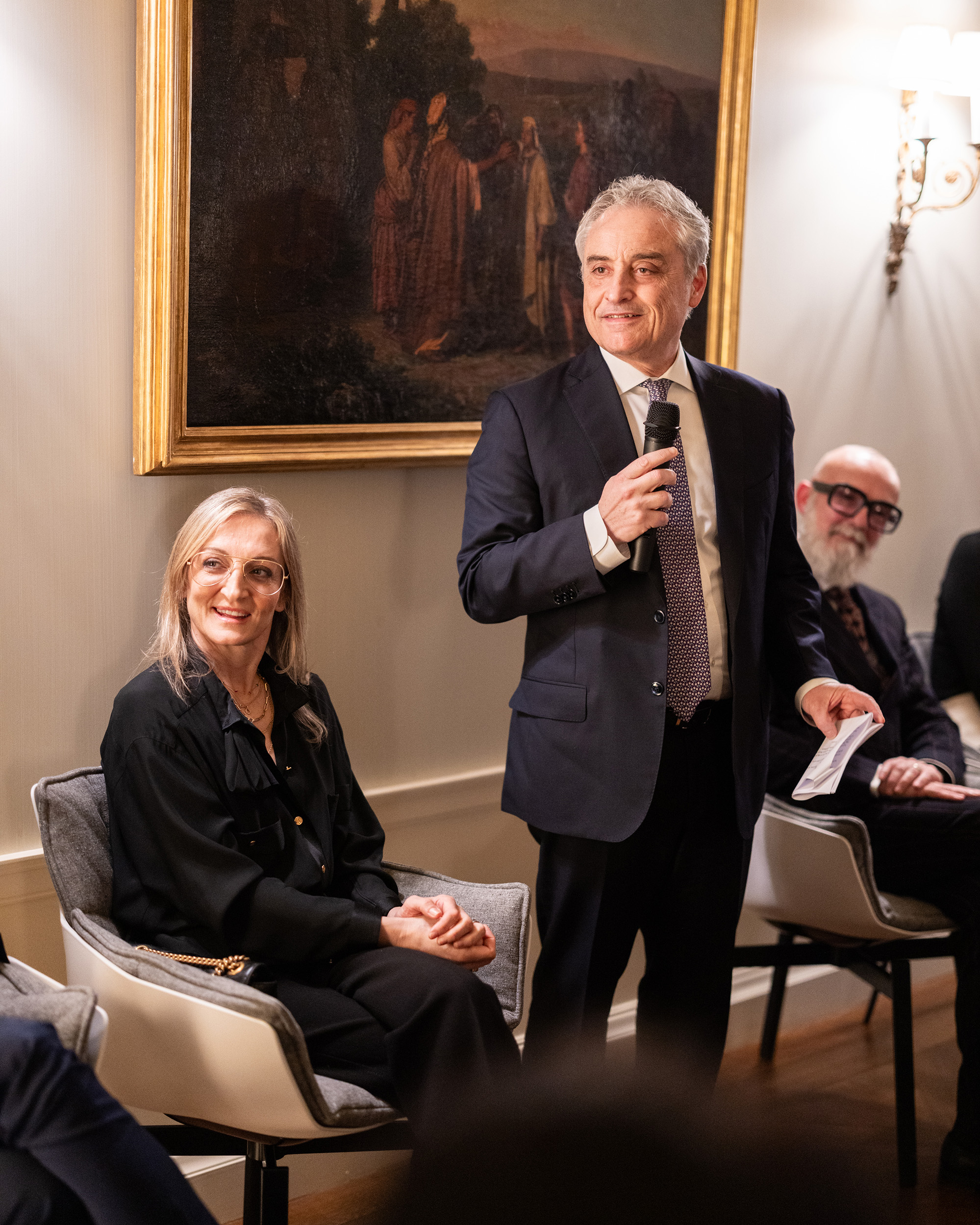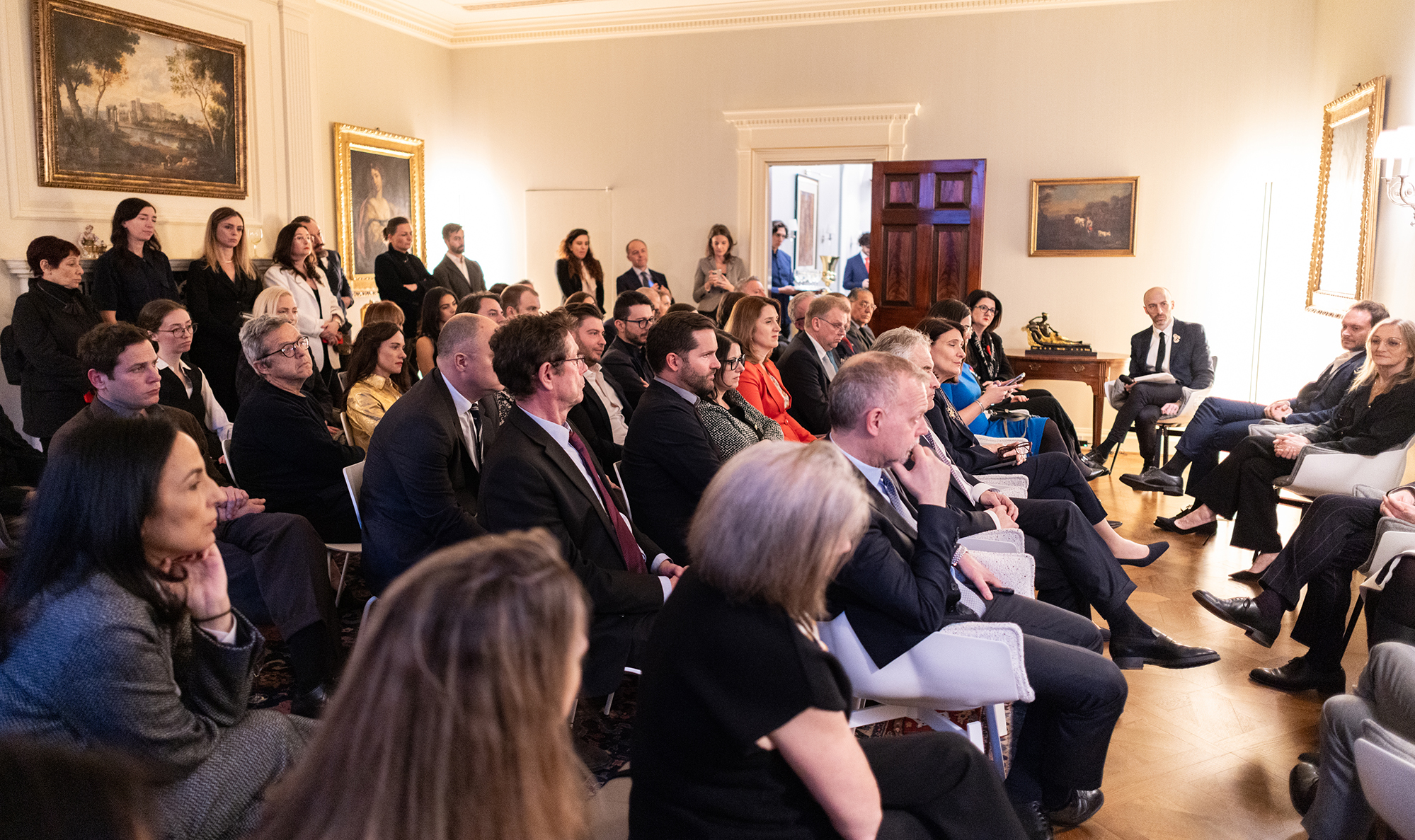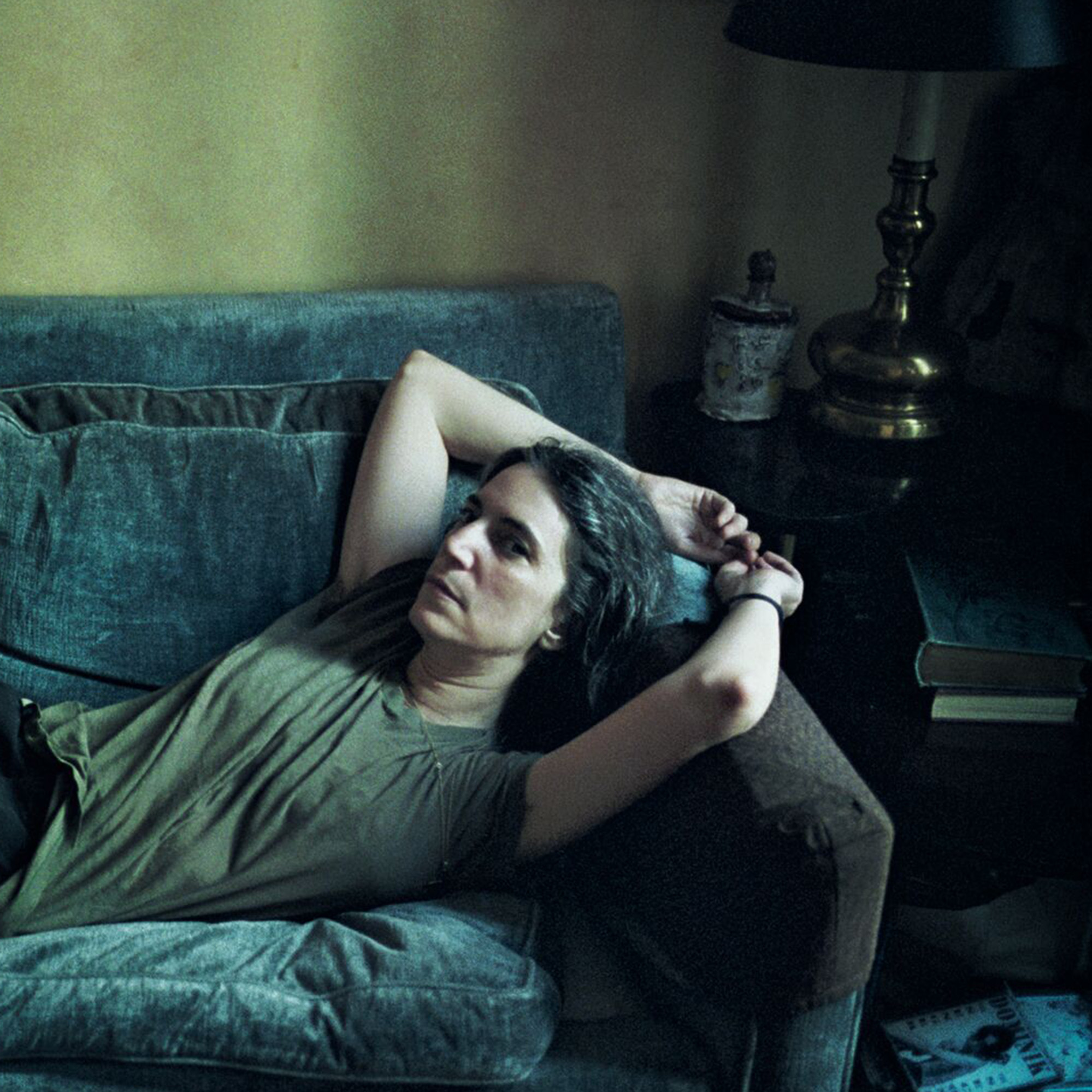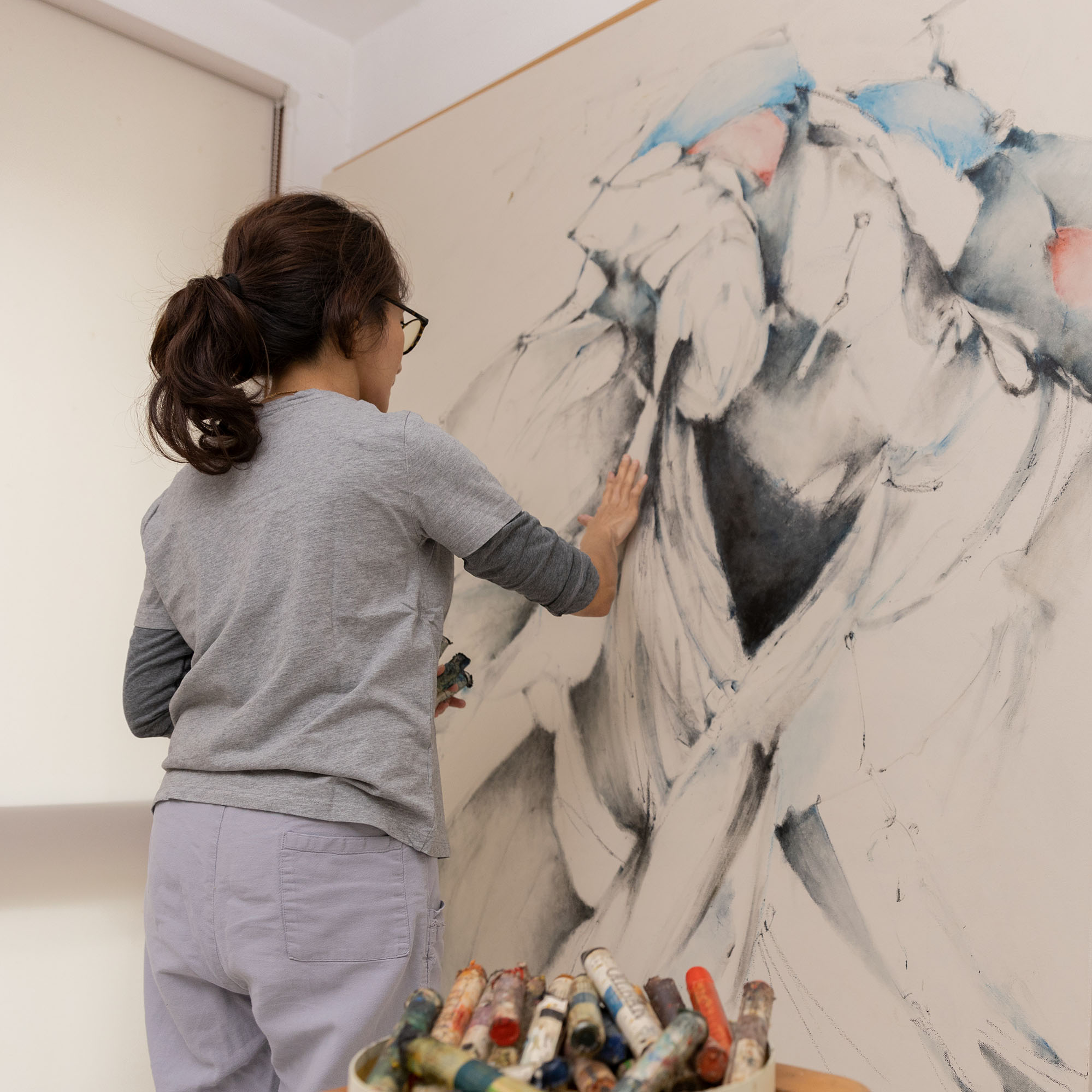Annie Leibovitz Shares Her Vision in Monaco
The newest gallery openings this week, including the dark side of the American dream, traditions of Aboriginal Australian painting, a cheeky photographer, and more.

Last week, in the Upper East Side townhouse of the Permanent Representative of Italy to the United Nations, Ambassador Maurizio Massari, leaders from some of the most celebrated names in Italian design gathered for an exchange of ideas. The occasion, the annual Italian Design Day—celebrated worldwide by the Italian Ministry of Foreign Affairs through its network—immersed attendees in the value of the nation’s heritage and commitment to the future.
Here, Dan Rubinstein, the host of The Grand Tourist, was invited to moderate an in-depth discussion on sustainability and innovation, featuring Orane Abezis, the Design Director for B&B Italia in the U.S.; Cinzia Bernasconi, the U.S. CEO of Flos; John J. Jenkin, the U.S. CEO of Kartell; and Marco Oleari, the head of design for Poliform U.S. Rounding out the insightful panelists was Andy Mitchell, the U.S. CEO of Italian football league Lega Serie A.
Speaking to guests seated on B&B Italia’s Husk and Erica chairs, Ambassador Massari highlighted the Italian Ministry of Foreign Affairs’ global roster of events spotlighting the quality of Italian design. Acknowledging that the residence was furnished in pieces from all of the aforementioned brands, he added, “We are highlighting collections that align with the 2030 agenda of the United Nations and their 17 sustainable development goals. Design, art, culture, and industry are important drivers in promoting sustainable development.”
Addressing the first question, Abezis acknowledged that B&B Italia was born from the desire of its founder, Piero Ambrogio Busnelli, to revolutionize the industry. It’s a sentiment that matches the fervor for innovation and change today. “I don’t think we would be here today if it weren’t for someone taking a risk to have a bold dream, and to assemble talented people to start our R&D department,” she said of the company’s DNA.
Meanwhile, Jenkin explained how great Italian design should be informed by the evolution of our everyday lives. “I grew up in a middle-class Italian family. We had a living room sofa; I would sit on that sofa and watch TV,” he shared. “Today, my kids don’t sit on the sofa, they collapse onto it. They don’t watch TV, they play [on their phones] instead. The challenge for designers is to ask, ‘What is the next step for the sofa?’” Jenkin said that at Kartell, ideas used to begin with a design; now, they start with a material.
While the company was founded on the introduction of plastic into furniture design, “There’s a stigma around plastic because there’s a confusion between a plastic chair and a plastic bag. They’re not the same,” he said. “Plastic is still part of our conversation. But we also gave ourselves a challenge with principles around sustainability—and the 17 sustainable goals set by the United Nations. Now, we use recycled industrial materials for most of our chairs. What was trash now has a purpose.”

Poliform faced one of its biggest challenges when tasked with producing kitchen cabinets and closets for a residential development in Manhattan’s Gramercy neighborhood that was seeking LEED Platinum certification. In succeeding to do so, the brand was able to push their existing sustainability research to new heights, including wood contributions that were completely FSC certified. “It was a great achievement for us,” Oleari said. Moreover, the research taught them how to apply this to other projects with strict sustainability standards. “Now, we could easily do it again,” he added.
Bernasconi’s insights underpinned her lighting brand’s growing commitment to New York and the American market, with a new 44,000-square-foot warehouse in Bushwick, Brooklyn, that houses the brand’s atelier for special commissions at locations such as JFK airport’s TWA terminal and the Perelman Performing Arts Center. “The beauty of the space is the ability for Flos to bring all of our knowledge, heritage, research, technology, and innovation in one place,” Bernasconi said, explaining how this new foothold makes the company more sustainable, maintaining the Flos DNA while adding a new dimension to the concept of “Made in Italy.”
Though Mitchell’s position at Lega Serie A isn’t one most people would associate with design, he finds himself asking the same question as all the other panelists: “How can we showcase Italian excellence?” As he explained, “We work hard to connect Italian culture to the game. For instance, we ask, ‘What is Bologna? How is it different? What is created there? What are the industries there?’” Mitchell and his team uncover all the components that demonstrate the breadth of Italian creativity in each city, and then they share it as widely as they can. In many ways, that’s the very spirit of Italian Design Day itself. italyun.esteri.it

The newest gallery openings this week, including the dark side of the American dream, traditions of Aboriginal Australian painting, a cheeky photographer, and more.

For Italian fashion photographer Alessio Boni, New York was a gateway to his American dream, which altered his life forever. In a series of highly personal works, made with his own unique process, he explores an apocalyptic clash of cultures.

Plus, an exciting young British artist receives a retrospective, Marcel Dzama's whimsical drawings take a political turn in L.A., and more gallery openings.